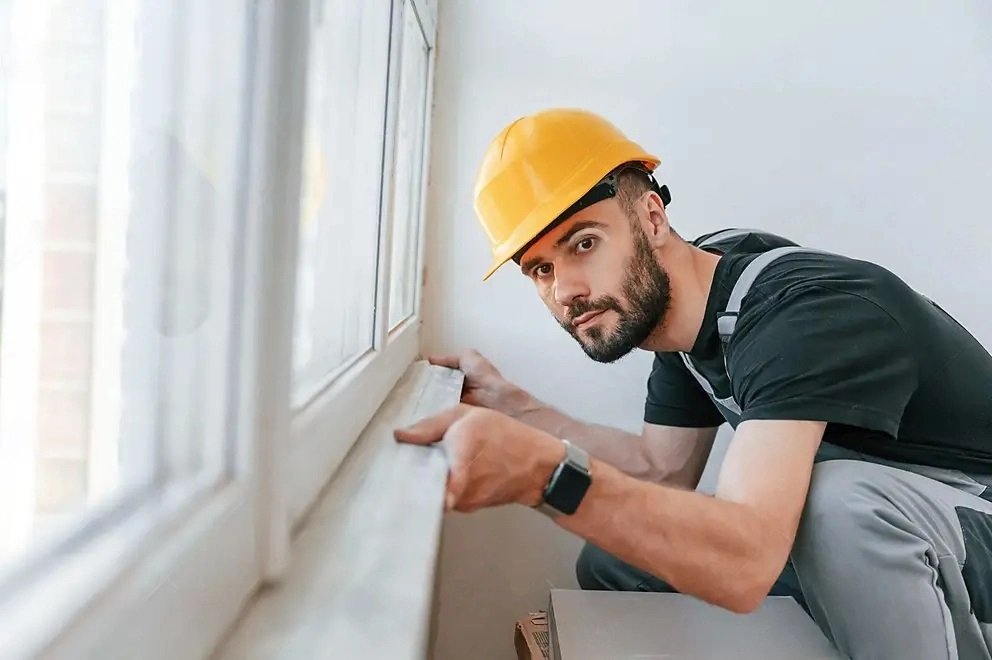Choosing the right windows and ensuring proper installation are crucial steps in maintaining comfort, energy efficiency, and aesthetic appeal in Canadian homes. Before making a decision, it’s important for Canadians to understand the factors that influence window installation and how to navigate the process effectively. Let’s explore what Canadians should know before embarking on a window installation project.
Climate Considerations
Canada’s diverse climate presents unique challenges and considerations when it comes to window installation. From harsh winters in the north to humid summers in the south, selecting windows that can withstand the elements and provide optimal thermal performance is essential for maintaining indoor comfort and energy efficiency year-round.
Energy Efficiency Ratings: Look for windows with high Energy Star ratings that are specifically designed for the Canadian climate, featuring advanced insulation materials and thermal barriers to minimize heat loss in winter and heat gain in summer.
Triple Pane vs. Double Pane: Consider upgrading to triple-pane windows for enhanced insulation and soundproofing, particularly in regions with extreme temperatures or high noise levels, such as urban areas or near airports.
Low-E Coatings: Choose windows with Low-E (low emissivity) coatings that help reflect infrared heat and UV rays while allowing natural light to enter your home, reducing energy consumption and protecting interior furnishings from sun damage.
Weather Resistance: Prioritize windows with durable frames and weatherstripping that can withstand temperature fluctuations, wind, rain, and snow without warping, rotting, or deteriorating over time.
By considering climate-specific factors such as energy efficiency ratings, insulation properties, and weather resistance, Canadians can select windows that are well-suited to their regional climate and contribute to a comfortable and energy-efficient home environment.
Building Codes and Regulations
Understanding local building codes and regulations is essential for ensuring compliance and safety during the window installation process. Canadian homeowners should familiarize themselves with relevant codes and requirements to avoid costly mistakes and ensure that their window installation project meets industry standards and best practices.
Permit Requirements: Check with your local municipality or building department to determine whether a permit is required for window replacement or installation projects, as failure to obtain the necessary permits can result in fines, penalties, or delays.
Safety Standards: Ensure that your window installation contractor adheres to safety standards and regulations, such as proper ladder usage, fall protection measures, and equipment safety protocols, to minimize the risk of accidents or injuries during the installation process.
Fire Code Compliance: Verify that your chosen windows meet fire code requirements for egress, emergency escape, and fire protection, particularly in bedrooms, basements, and other areas designated for human occupancy.
Historic Preservation: If you live in a heritage district or own a heritage property, be aware of any restrictions or guidelines related to window replacement or restoration, and work with a qualified contractor who has experience navigating historic preservation requirements.
By familiarizing themselves with local building codes and regulations, Canadians can ensure that their window installation project complies with safety standards and legal requirements, minimizing the risk of non-compliance and ensuring a smooth and successful installation process.

Material Selection and Performance
Choosing the right window materials is essential for achieving the desired aesthetic, durability, and performance in Canadian homes. From traditional wood frames to modern vinyl and fiberglass options, homeowners should consider factors such as durability, maintenance requirements, and energy efficiency when selecting windows for their property.
Wood: Classic and versatile, wood windows offer timeless beauty and charm, but require regular maintenance to prevent rot, warping, and deterioration, making them best suited for mild climates with lower humidity levels.
Vinyl: Low-maintenance and cost-effective, vinyl windows are popular choices for Canadian homeowners seeking durability, energy efficiency, and affordability, with insulated frames and multi-chamber designs that enhance thermal performance and minimize heat transfer.
Fiberglass: Known for their strength, stability, and thermal efficiency, fiberglass windows are ideal for harsh climates and extreme weather conditions, offering superior durability, low expansion and contraction rates, and minimal maintenance requirements compared to other materials.
Aluminum: Lightweight and durable, aluminum windows are resistant to rust, corrosion, and decay, making them suitable for coastal areas or regions with high humidity levels, but may have lower thermal performance and insulation properties than other materials.
By carefully evaluating the pros and cons of different window materials, Canadians can choose windows that meet their aesthetic preferences, performance requirements, and budgetary constraints, ensuring long-lasting durability and energy efficiency in their homes.
Professional Installation and Warranty Coverage
Proper installation is key to maximizing the performance, longevity, and energy efficiency of new windows. Canadian homeowners should hire qualified and experienced window installation professionals who adhere to industry best practices and manufacturer guidelines to ensure a seamless and effective installation process.
Certified Installers: Choose window installation contractors who are licensed, insured, and certified by reputable industry organizations, such as the Window Wise certification program, which ensures that installers meet rigorous standards for quality and professionalism.
Installation Techniques: Verify that your chosen installer follows proper installation techniques, including proper flashing, sealing, and insulation methods, to prevent air leaks, water infiltration, and structural damage that can compromise window performance and longevity.
Warranty Coverage: Select windows with comprehensive warranty coverage that protects against defects in materials and workmanship, as well as installation-related issues, such as air and water leaks, to provide peace of mind and assurance that your investment is protected for years to come.
Post-Installation Support: Work with window installation professionals who offer post-installation support and maintenance services, such as annual inspections, adjustments, and repairs, to ensure that your windows continue to perform optimally and maintain their appearance and functionality over time.
By investing in professional installation and warranty coverage, Canadian homeowners can safeguard their window investment and enjoy peace of mind knowing that their windows are installed correctly, backed by industry-leading warranties, and supported by qualified professionals who prioritize customer satisfaction and long-term performance.
Window installation is a significant investment that requires careful consideration and planning to ensure optimal results. By understanding climate considerations, building codes and regulations, material selection, professional installation, and warranty coverage, Canadians can make informed decisions and enjoy the benefits of high-quality, energy-efficient windows that enhance comfort, durability, and aesthetic appeal in their homes. Contact a trusted window installation contractor to learn more about how to navigate the window installation process and choose the best windows for your Canadian home.
